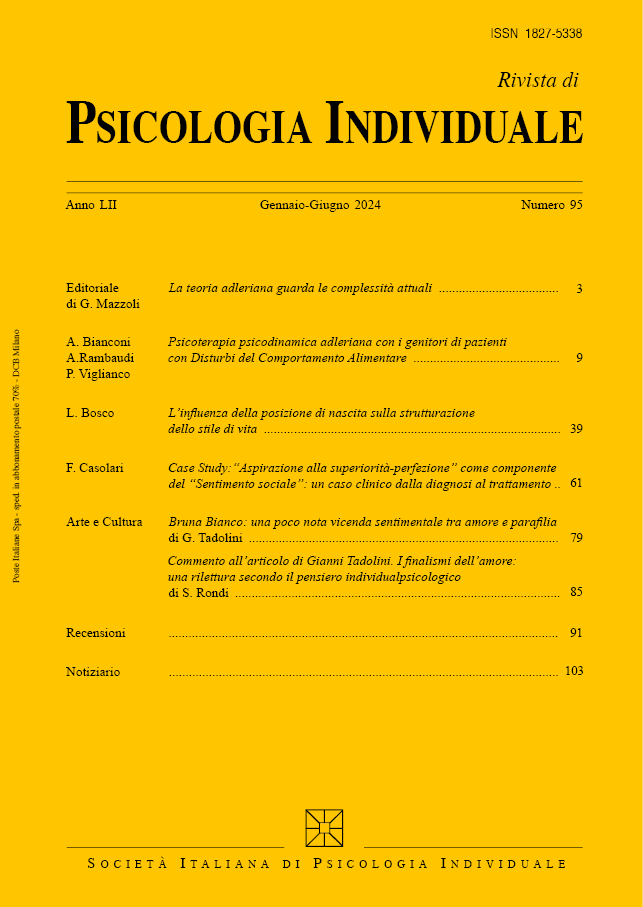Aspetti caratteristici del transfert
Parole chiave:
transfert, s. freud, k.g. jung, k. horney, trattamento analitico, alleanza terapeutica, polarità, sopra-sottoAbstract
Tutti gli analisti, di qualsiasi scuola, sottolineano l’importanza del transfert e il suo peso nel rapporto analista-analizzato. Il transfert si può definire genericamente come l’insieme di quei sentimenti, intensi, inappropriati, mutevoli, infantili, ambivalenti, che il paziente prova per l’analista, originati inconsciamente da figure significative nell’infanzia del paziente e rivissuti al presente sulla persona dell’analista. Secondo Adler uno degli aspetti tipici che caratterizzano il transfert paziente-analista è la polarità sopra-sotto, dettata dall’atteggiamento carico di resistenze che l’individuo sviluppa nel rapporto analista-paziente. Tali resistenze sono originate dalla paura che l’analista costringa in qualche modo il paziente a modificare il suo stile di vita fino a quel momento abituale e dunque rassicurante. Diventa importante instaurare un rapporto paritario, fondato sulla solidarietà, sul sentimento sociale e sul rispetto dell’individuo inteso come persone unica e irripetibile. Vengono esposte le posizioni sul transfert di Freud, Jung, Horney e le affinità col pensiero di Adler






